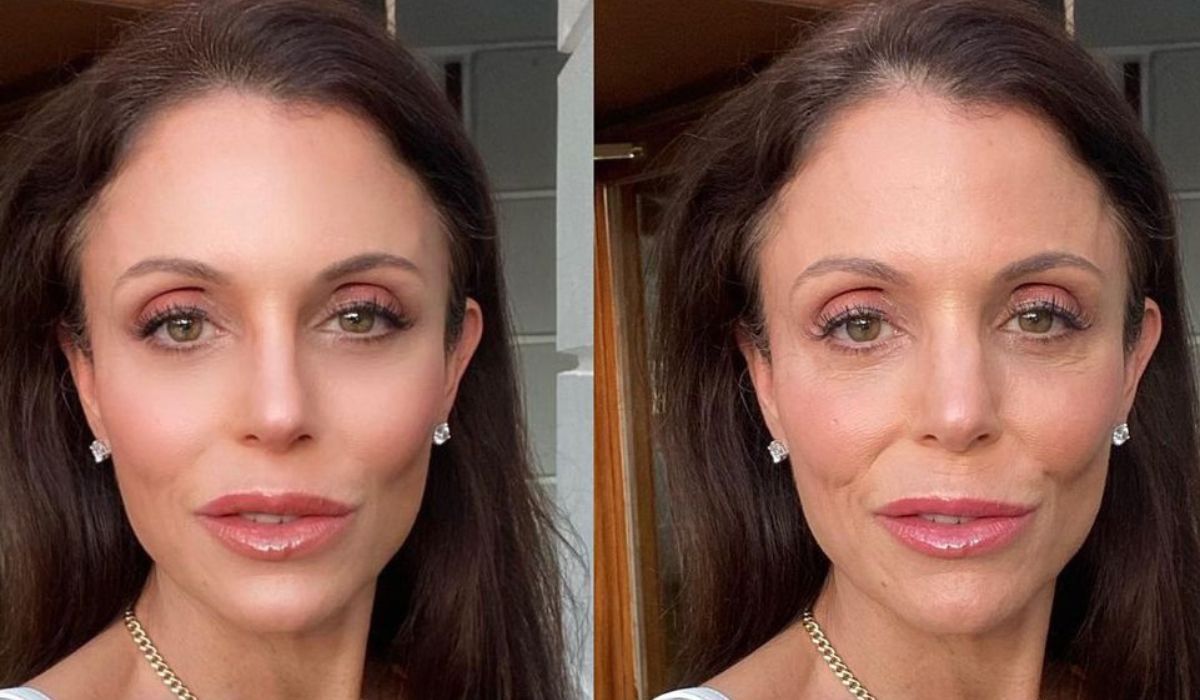Reality TV Icon Bethenny Frankel Is on a Mission to Take on Social Media's Warped Reality. Here's Why
Bethenny Frankel, the former “Real Housewives of New York City” star, was tired of heavily filtered photos on social media making her feel bad—and worse, influencing her 12-year-old daughter, Bryn.
So, she recently took to her own social media with side-by-side photos of herself: one filtered, one not.
“Hey it’s me, your favorite filtered friend,” she wrote in the caption, referring to her touched-up selfie. “Just making myself look a little better, a little younger, so you think I look better than you. Doesn’t that really build up your self-esteem? I spend hours with tech assistants to make myself look good and you feel bad!”
The post has received tremendous feedback, prompting Frankel to share a video message encouraging all of us to comment on filtered posts when we see them and “unfollow” those accounts. You can even post the hashtag #filteredunfollow, says Frankel.
“Women are going through a lot already,” the reality TV star said in a video message. “Menopause, post-partum depression, feeling insecure, infidelity in relationships, trying to get our kids to school, not having a team of tech experts who’ll take a whole day to edit a photo. It’s time for all of us to see real women being real women—having gray hair, dark circles, focusing on something other than vanity and superficiality. Let’s try that for a change. Who’s in?”
We are! The Sunday Paper sat down with Frankel this week to talk to her about why she’s taking on social media’s warped reality, what she does to avoid getting sucked into the negative self-talk that can result from scrolling through her own social media newsfeeds, and how all of us can play a role in creating a more honest, authentic social media experience for everyone.
A CONVERSATION WITH BETHENNY FRANKEL
You’ve spoken out recently on the effects that social media’s edited, filtered photos are having on our society and especially our kids. What inspired you to draw attention to this subject?
It’s outrageous that it’s not discussed more. It’s deception. It’s lying, and it repeatedly and methodically delivers a dangerous message to young individuals and women, in particular. It makes them feel insecure and strive for the impossible. This leads to depression, anxiety, obsession with appearance, and eating disorders.
People with tremendous reach and influence have teams of experts to remove bones in their bodies, taper waists, smooth skin, and create the illusion of youth. If you see most celebrities in person, they’re unrecognizable. This also creates a pressure for everyone else to lie because if they post themselves truthfully, they look drastically worse than others. It’s a nightmare.
You have to be very sad and insecure to perpetuate something so damaging with reckless abandon.
Tell us more about how the use of filtered and retouched photos is negatively affecting the mental health of our young people?
It’s the small adjustments every day in the images people post that is really damaging long term. It’s like this filtered, unrealistic look has gradually started to look authentic. Young men think that this is the female ideal. Young women are obsessed with these unattainable features. Plastic surgery, extensions, fake eyelashes, and obsessive skincare are the focus of tweens more than ever before. Even middle-aged women, many of whom are just trying to keep it together, feel the need to compete. They feel insecure and experience overwhelming pressure to live at the gym and constantly be on some fad diet. It’s upside down. Why is everyone so focused on the synthetic and artificial?
What do you do when you’re scrolling through social media and seeing filtered image after filtered image? How do you avoid getting sucked into the negative self-talk that can result?
I am not vain at all. I am not defined by my looks. I think the people doing that look like desperate, thirsty, unhappy clowns.
Usually, the people unhappy inside want to project a happy image outside. I’m focusing on what’s important inside and that’s enough of a struggle for me.
What do you think it’s going to take for more of us to move toward a more authentic social media experience?
Everyone just has to be mad as hell and not take it anymore. I have unfollowed so many accounts and I scroll past anything from the top offenders. We can’t promote this. We can’t buy products with this deception happening in the advertising. We have to try to get back to the truth for our kids.
What’s your best advice for the rest of us trying to navigate this warped reality online? What can we do as parents and grandparents to help our young people? What can we do ourselves?
Communicate. Discuss what is the most compelling thing about a person. Be the most interesting person in the room. Focus on that. The happiest, most fun, confident, interesting person is always the most attractive. I’ll go head-to-head with 10 supermodels any day. I have a brain, a business, confidence, and a personality. And I have a story. I’m definitely interesting. People are attracted to confidence—not fake breasts. That may last a minute. The right priorities last a lifetime.




